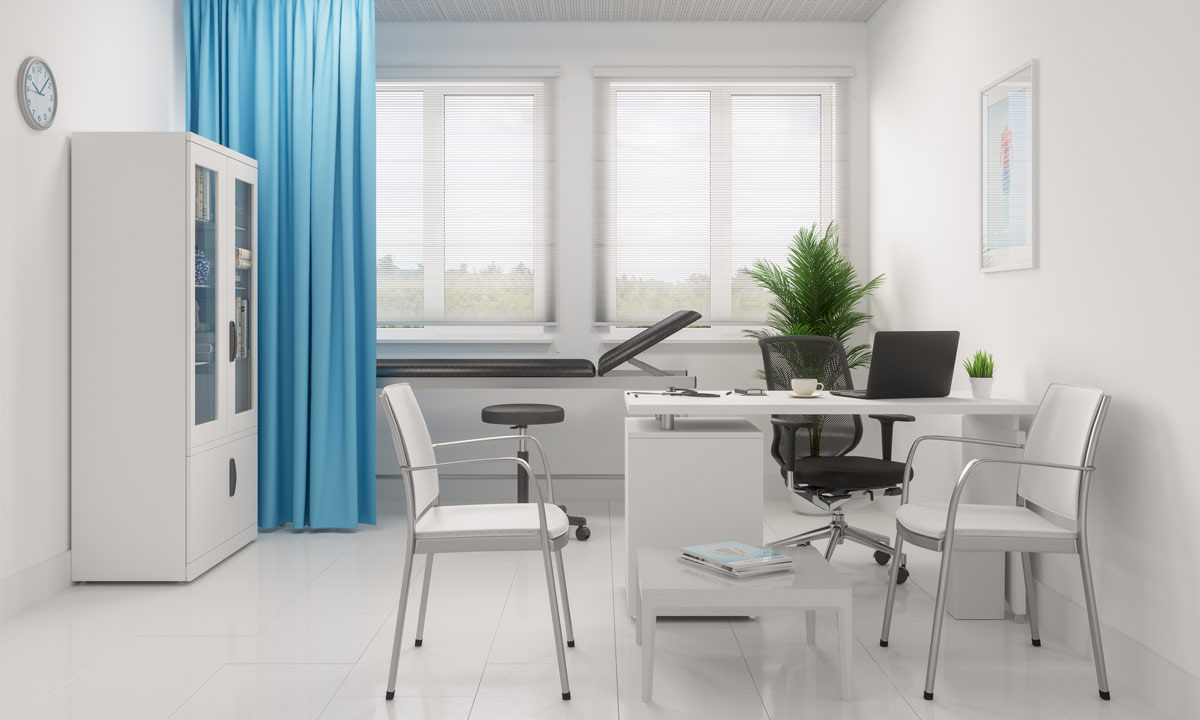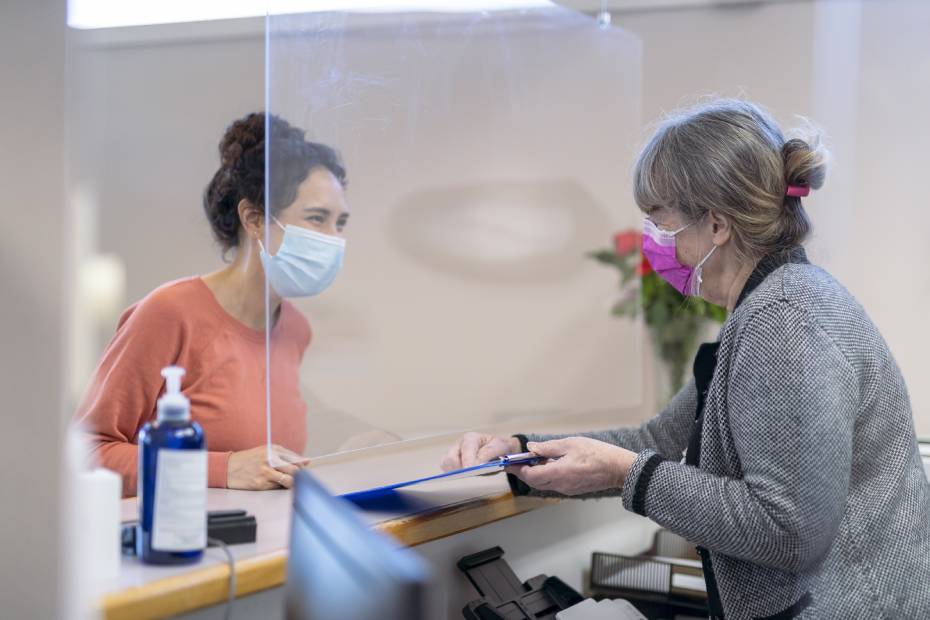This is a shortened version of a story previously published on Dr. Bill.
Often when a physician starts a medical practice, their first step is to look for a space to lease. However, since many medical practices depend on one long-term location to attract and retain loyal customers in the community, sometimes buying office space may make more sense. Let’s take a look at some pros of buying and leasing.
Pros of Buying Medical Office Space
1. Location, location, location
A great location is hard to find. If you’re lucky enough to find one that helps to grow your patient base through foot traffic and easy access to public transit, a purchase to secure the space is one way to provide stability to your practice.
2. Freedom and control
If you value the freedom to run every aspect of your medical practice without potential limits, restrictions, and rent increases, consider buying an office space. This will allow you to change the building as you please (along with any needed government permits or approval) and control what you do with and what happens on your property.
3. Financial gain: build your personal wealth
In recent years, commercial real estate has been a great investment for many entrepreneurs, including physicians. Of course nothing is guaranteed, but owning can build equity independently from your medical practice. This equity can be handy in so many ways, including as collateral for loans you might need later to upgrade equipment, renovate the space, or hire additional staff.
A great reason to buy is you will no longer be paying rent to someone else. If you set up ownership in such a way that your own corporation owns the building, you pay rent to that corporation, and in turn pay your practice expenses and mortgage out of that rent, then you get to keep the amount leftover as your income.
Other financial benefits include fixed (instead of variable) costs, tax deductions and possible additional income (like renting out any extra space you may not need).
Pros of Leasing Medical Office Space
1. Time saver
With leasing, you are free from the additional responsibility and potential problems that come with owning a property. More of your time will be freed up to focus on your practice because the landlord handles repairs and maintenance.
2. Score a prime location
Leasing your medical office space gives you the chance to be in a desirable area with a good image, which can be important for some medical practices. Leasing medical office space in these high traffic areas is typically much more affordable than buying.
3. Flexibility
If your practice is growing rapidly or downsizing, or you’re unsure what will happen in the future, leasing may be the right option until you feel more stable. You get more short-term flexibility with leasing, as it’s easier to leave the space. As well, you can move in faster since a purchase deal can take a few months or longer to close and you may need even more time to remodel or renovate the office to suit your needs. This flexibility also comes up regularly when your lease is ending and you can choose to stay or leave – it’s a prime opportunity to evaluate options for your practice, your real estate needs, and the market.
4. Frees up your working capital
New medical practices can’t often commit a lot of capital to office space, so they will most likely lease. Even established practices need to be generating enough income to fund both their growth and property purchase. If you’ve opted to lease, thereby freeing up that capital, your practice is better able to respond to market opportunities and to qualify for larger loans, should you need them to, say, fund your practice’s growth.
Other financial benefits include:
- A low initial financial commitment with no down payment.
- Tax-deductible lease payments.
- Higher cash flow that helps your credit rating.
- Some utilities and services possibly included in rent, such as water or cleaning.
- Few unforeseeable costs since your lease dictates what the costs will be and most large capital items are the landlord’s responsibility.
Questions to consider
Choosing to buy or lease your medical office space can be a difficult decision. Asking yourself these tough questions might help:
- How long can you commit to a location or building? Financial studies have shown that, for the short term, leasing is more cost-effective than buying. However, if you are considering a property where you can set up your medical office for at least 10 years, then buying becomes more financially attractive.
- How fast is your practice growing? If you anticipate your medical practice to rapidly grow in the next few years, then leasing gives you greater. If you buy, you may outgrow the office or purchase more space than you need, which comes with associated expenses. This also applies if you think your practice may downsize in the next few years.
- How are the local market and economy doing? The performance of real estate markets across Canada vary, so it’s important to learn about your local conditions. If your area has been in a slump but is coming out of it, then this could be a good time to invest. However, if property values are declining or are overinflated, leasing might offer a better location and protect you from losing the money it could cost you if you had bought and needed to sell.
- What is available? If you can’t find what you need for lease, you may have to buy, and vice versa.
- What is the cost? Cost is also important, and if everything else is equal between two properties, running a cost comparison over the short and long term is prudent.
Remember, both buying and leasing have perks and drawbacks that not only affect your bank account but also how you manage your practice. Keeping these things top of mind as you work and make plans for your future will help set you up for success.
This article is intended as general information only and is not to be relied upon as constituting legal, financial or other professional advice. A professional advisor should be consulted regarding your specific situation. Information presented is believed to be factual and up-to-date but we do not guarantee its accuracy and it should not be regarded as a complete analysis of the subjects discussed. All expressions of opinion reflect the judgment of the authors as of the date of publication and are subject to change. No endorsement of any third parties or their advice, opinions, information, products or services is expressly given or implied by Royal Bank of Canada or any of its affiliates.

















